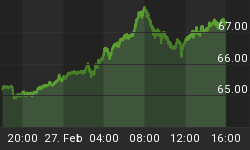A month ago, two of our favorite leading indicators for the Euro-zone economy were pointing to a slowdown but not an outright stop, and we were still hopeful that signs of recovery could be cropping up by the end of this year. One month on, the outlook has deteriorated.
Germany's Ifo business climate index for September - a poll of around 7,000 firms - deteriorated for the fourth consecutive month, coming in at 92.9 (94.8 in August). The gauge of current conditions dropped to 99.8 (103.2 in August) and the expectations index slipped to 86.5 (from 87.0), its lowest level in 15 years. The overall index is still above the lows recorded in late 2002, the last time Germany was headed into recession. However, as we've noted before, the speed of the recent fall is disconcerting. Or, as the Institute stated in its own commentary: "The downward trend...is proceeding in large steps." It should also be noted that about 60% of the survey's responses were gathered before last week's news about the collapse of Lehman and the rescue of AIG. It is therefore highly likely that the business climate index for October will be significantly lower.
Chart 1
The September Belgian National Bank business confidence index (a leading indicator for Euro-zone growth about six months out), released yesterday, dropped to a five-year low, coming in at -14.1 (-5.9 in August). Confidence deteriorated in all sectors, with a notable decline in manufacturing (falling to -15.8 from -5.6 in August). The BNB reported that indicators relating to domestic and export demand "deteriorated considerably."
Chart 2
Not surprisingly, other business confidence indicators have also been gloomy. French business confidence fell to a five-year low this month, with the main index reading just 92.9, while Italy's came in at 82.7 - the lowest since September 2001.
Chart 3
Yesterday also brought a slew of flash purchasing managers' indices from the major Euro-zone economies - and all the news was gloomy. The Markit composite PMI for Germany (combining the manufacturing and services surveys) fell to 48.6 (50.5 in August), with the manufacturing index dropping to 48.1 (49.7 in August), its lowest in eight years, and the services index edging below the growth-contraction mark of 50, coming in at 49.3 (51.4 in August). In France, a slight improvement in the services index helped the Markit/CDAF composite PMI to recover slightly, to 47.7 (46.9 in August), but the manufacturing index saw its sharpest fall in six and a half years, dropping from 45.8 in August to just 43.6. Not surprisingly, the composite PMI for the Euro-zone as a whole fell from 48.0 last month to 47.0, with the manufacturing PMI dropping to a seven-year low of 45.3 (47.6 in August) and the services index stalled at 48.2 (48.5 in August).
All of which confirms our earlier suspicion that the Euro-zone will see a second quarter of contraction in Q3, and significantly increases the risk that Q4 will bring further negative growth. Upcoming data releases to watch include the German Gfk consumer confidence survey for October (due September 25), preliminary German inflation (September 26), Euro-zone September sentiment surveys (September 29) and flash Euro-zone inflation data for September (30th).















